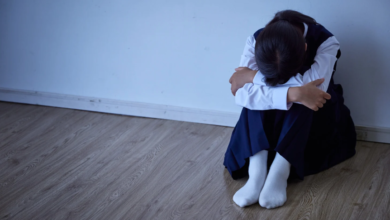
Role of a Spiritual Psychiatrist in Managing Anxiety and Depression
Mental health challenges like anxiety and depression affect millions of people, often leaving them feeling disconnected from their inner sense of peace and purpose. While traditional psychiatric treatments focus primarily on symptoms and brain chemistry, spiritual psychiatry offers a more comprehensive approach that addresses the whole person. For individuals seeking deeper healing that honors their spiritual nature, working with a spiritual psychiatrist in New York can provide transformative results. This integrative approach combines evidence-based medical practices with spiritual wisdom to create personalized treatment plans.
Understanding Spiritual Psychiatry’s Unique Approach
Spiritual psychiatry operates on the principle that humans are multidimensional beings with interconnected physical, psychological, and spiritual aspects. Unlike conventional treatment methods that primarily target symptoms, spiritual psychiatrists recognize that anxiety and depression often stem from deeper spiritual disconnection or existential concerns.
Core Treatment Modalities for Anxiety
Mindfulness and Contemplative Practices
Spiritual psychiatrists frequently incorporate mindfulness meditation and contemplative practices into anxiety treatment. These techniques help patients develop present-moment awareness while reducing the racing thoughts and worry patterns that fuel anxious feelings.
Patients learn to observe their anxious thoughts without being overwhelmed by them, creating space for inner peace to emerge.
Many individuals discover that how spiritual psychiatry is helping New Yorkers improve their emotional well-being involves reconnecting with contemplative practices that anchor them in stillness and calm.
Breathing and Energy Work
Spiritual psychiatrists often teach specialized breathing techniques that help regulate the nervous system and reduce anxiety symptoms. These practices, drawn from various spiritual traditions, help patients access their body’s natural ability to self-soothe and find balance.
Energy healing modalities such as Reiki or chakra balancing may also be incorporated to address energetic imbalances that contribute to anxious feelings.
See also: The Best Time of Year to Install Pine Straw for Maximum Benefits
Addressing Depression Through Spiritual Integration
Meaning-Making and Purpose Exploration
Depression often involves feelings of hopelessness, emptiness, and disconnection from life’s meaning. Spiritual psychiatrists help patients explore their sense of purpose and connection to something greater than themselves, which can be profoundly healing for depressive symptoms.
This exploration might involve examining the patient’s values, passions, and calling in life.
Spiritual Community and Connection
Isolation and disconnection frequently accompany depression. Spiritual psychiatrists recognize the healing power of spiritual community and may encourage patients to engage with faith communities, meditation groups, or other spiritual gatherings that align with their beliefs.
Integration with Traditional Treatments
Complementary Medication Management
Spiritual psychiatrists are fully trained medical doctors who can prescribe medication when appropriate. They understand how to integrate pharmaceutical treatments with spiritual practices to create comprehensive healing approaches.
Psychotherapy Enhancement
Traditional therapeutic modalities like cognitive behavioral therapy can be enhanced with spiritual elements. Spiritual psychiatrists might incorporate prayer, meditation, or spiritual reflection into therapy sessions, creating a more holistic healing environment.
Addressing Trauma and Emotional Healing
Many cases of anxiety and depression have roots in unresolved trauma or emotional wounds. Understanding how spiritual psychiatry supports healing from trauma and emotional challenges reveals the profound capacity for spiritual practices to facilitate deep emotional healing.
Forgiveness and Compassion Work
Many spiritual traditions emphasize forgiveness and self-compassion as pathways to healing. Spiritual psychiatrists help patients explore these concepts in ways that promote emotional freedom and reduce the shame and self-criticism that often accompany anxiety and depression.
Building Resilience and Long-Term Wellness
Developing Daily Spiritual Practices
Spiritual psychiatrists work with patients to establish sustainable daily practices that support ongoing mental health. This might include morning meditation, evening prayer, gratitude practices, or nature connection rituals that help maintain emotional balance.
Read more: Exploring the Role of Meditation in Spiritual Psychiatry
Conclusion
The role of a spiritual psychiatrist in managing anxiety and depression extends far beyond symptom management to encompass the full spectrum of human experience. By addressing the spiritual dimensions of mental health, these practitioners help patients access deeper sources of healing and resilience. This comprehensive approach recognizes that true wellness involves not just the absence of symptoms, but the presence of meaning, connection, and spiritual vitality that makes life worth living.




